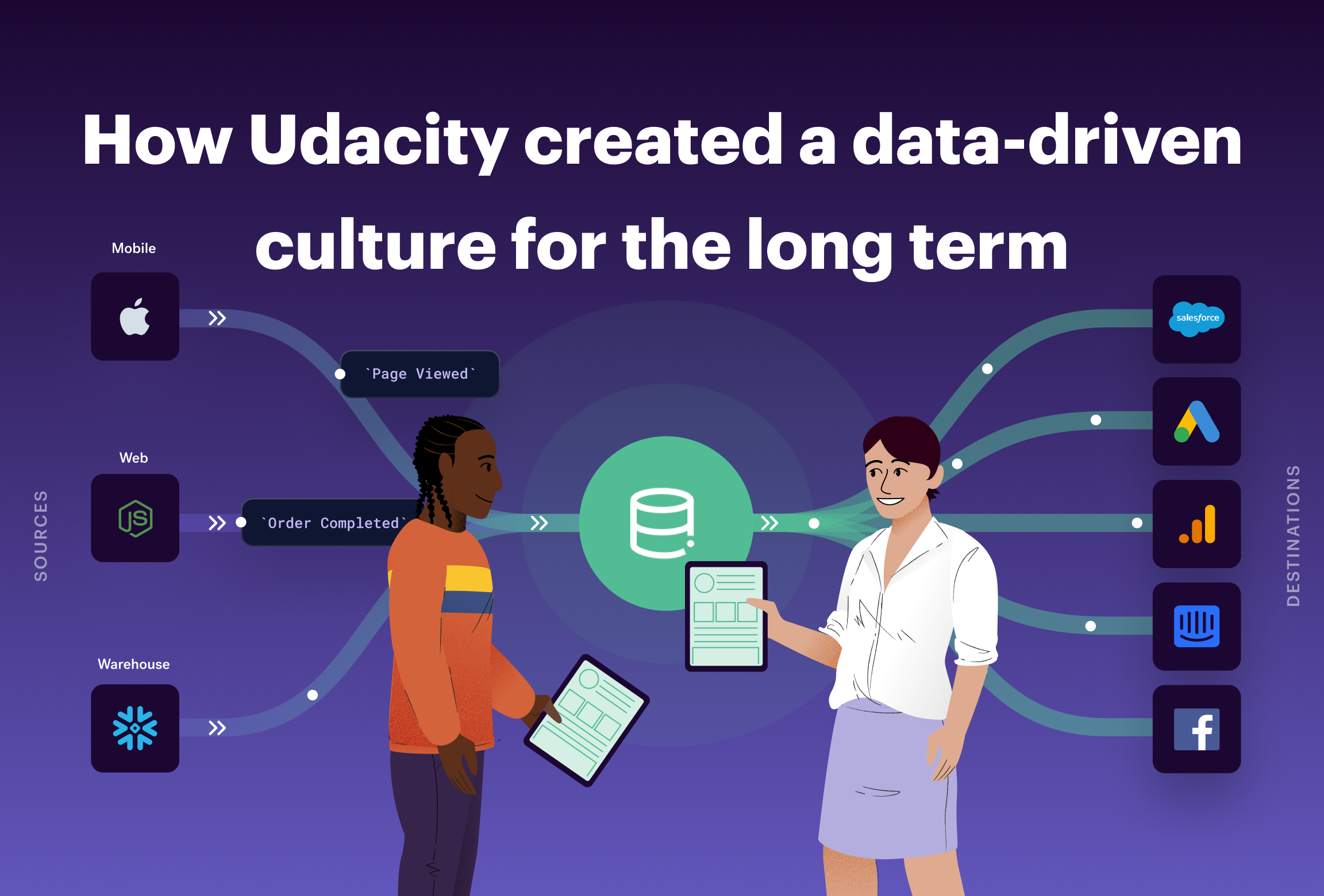How Udacity created a data-driven culture for the long term—in 4 steps
4 critical steps Udacity took to create a data-driven culture for the long term
4 critical steps Udacity took to create a data-driven culture for the long term
"Companies need to treat data like a first class citizen." -Mike Doll, Udacity

Udacity is a fast growing online education platform that aims to train the world’s workforce in the careers of the future. Their powerful digital education platform offers global users the opportunity to advance their careers.
With over 1 million sign ups in their first nine years, Udacity has always put an emphasis on data and data collection. However, with increasing data volume and rapid growth, Udacity wanted to build the structures and organizational mindset needed to create a data-driven culture that would drive long-term success.
Mike Doll, Head of Data & Analytics at Udacity, led this initiative and recently shared what it takes to build a data-driven culture at CDP Week.
The Udacity team first streamlined their data operations by building a data center of excellence. This aligned the organization around a cohesive data strategy and centralized the standardization and governance of Udacity’s data. Without a data center of excellence, organizations often have siloed tools, manual workflows, barriers between teams, and inconsistent data. A data center of excellence creates unified processes and tools for the entire organization and empowers a more data-driven company.
The second step the Udacity team took was to invest in trustworthy data. Mike Doll at Udacity recommends that organizations, “Invest in really clean, flexible, simple data. Keep it accessible, keep it consistent, and well-governed so that data has trust.” Segment, their Customer Data Platform (CDP), is a key piece of their data architecture that helps Udacity ensure their data is trustworthy. Segment helps them collect, govern, clean, and standardize their customer event data. Without a CDP, it’s manual and inefficient to connect and manage trustworthy data across channels, platforms, and teams. Segment gives Udacity confidence in their event data to make better business decisions.
With their strategy and data centralized, Udacity’s Data and Analytics was able to focus on improving internal partnerships between data teams and customer facing teams. Mike reinforced this as an important step because, “Analysts and data scientists are most effective when they are connected to the business they are supporting.” Data analysts and customer teams must have strong communication to make it easy to collaborate on data and improve KPIs. Without a strong partnership, teams lack a mutual understanding of the business needs, and data-driven decision making breaks down. Udacity’s strong partnership between these teams makes it easier to collaborate and create a data-first mindset throughout the company.
Finally, Udacity focused on nurturing an evergreen test-and-learn mentality. Udacity empowers business teams to test business hypotheses by providing support early and often from the Data and Analytics team. “My team helps with hypothesis generation, focused KPI selection, proper plans and durations, and deep analysis to find learnings from tests,” Mike says. Without an experimentation mentality, organizations risk wasting time, effort, and money on initiatives that may not work. Enabling teams throughout the company to experiment and iterate quickly helps build customer-centric experiences and agile companies.
Building a data-driven culture now and for the future starts by making sure good data is at the center of your organization. “Model the right behaviors and be clear about the type of culture you want to build. Spend energy getting the right culture,” Mike says. By investing in central processes, trustworthy and accessible data, strong cross-functional relationships, and a test and learn mentality, Udacity has set itself up for long-term growth.
You can watch Mike Doll’s full panel discussion on “Accelerating your business with digital experimentation” at CDP Week here.
If you’re wondering how to improve your data strategy and culture, start here by testing your customer data maturity or request a demo to speak to a Segment expert.

Our annual look at how attitudes, preferences, and experiences with personalization have evolved over the past year.